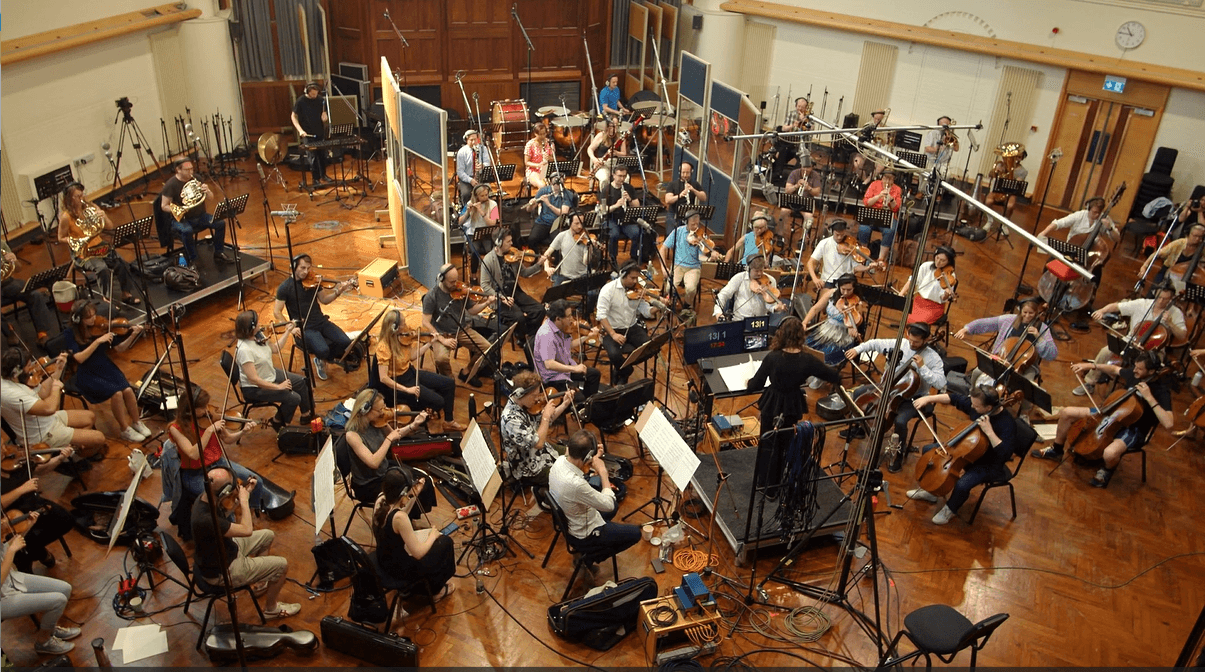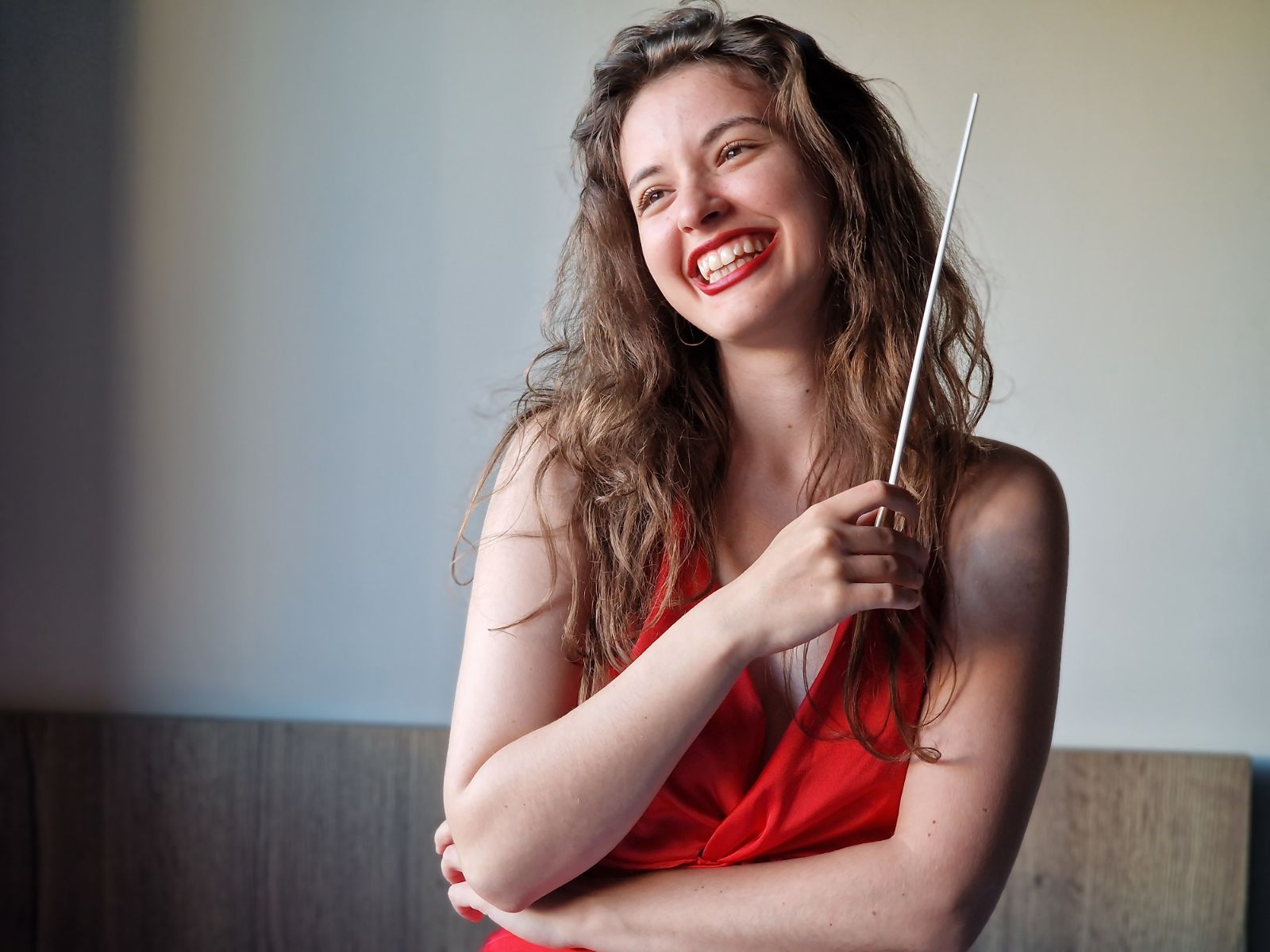We recently connected with Joëlle and have shared our conversation below.
Hi Joëlle, thanks for joining us today. Can you talk to us about how you learned to do what you do?
I started to compose from a very young age; with the age of six, I began to learn piano and singing and went to operas, theaters and ballets, which shaped me musically. Next to school and without yet an official training in composition, I started to write my first music pieces for piano, but it quickly developed into writing for different instruments, resulting in compositions for ensembles and orchestras. I participated in several competitions, workshops and masterclasses, simultaneously taking part in the talent promotion program for composition at the Music Academy of Basel. After high school, I pursued a bachelor’s and master’s degree in composition and additionally completed a conducting diploma. During my bachelor’s degree, I already wrote a first score to a movie released in Switzerland and during my master’s, I received my first orchestra commission. Whilst studying surely enhanced my knowledge, the key to becoming proficient, though, was to constantly write music. To learn the craft was to explore, to experiment and to develop a creative thinking.
Especially as a film music composer, it is important to understand the movie you work on, be it in terms of camera angles, characters, settings or colors. You also dive into deep conversations with the director and the film crew members – it is hence very important to be attentive and to complete each task with your fullest commitment.
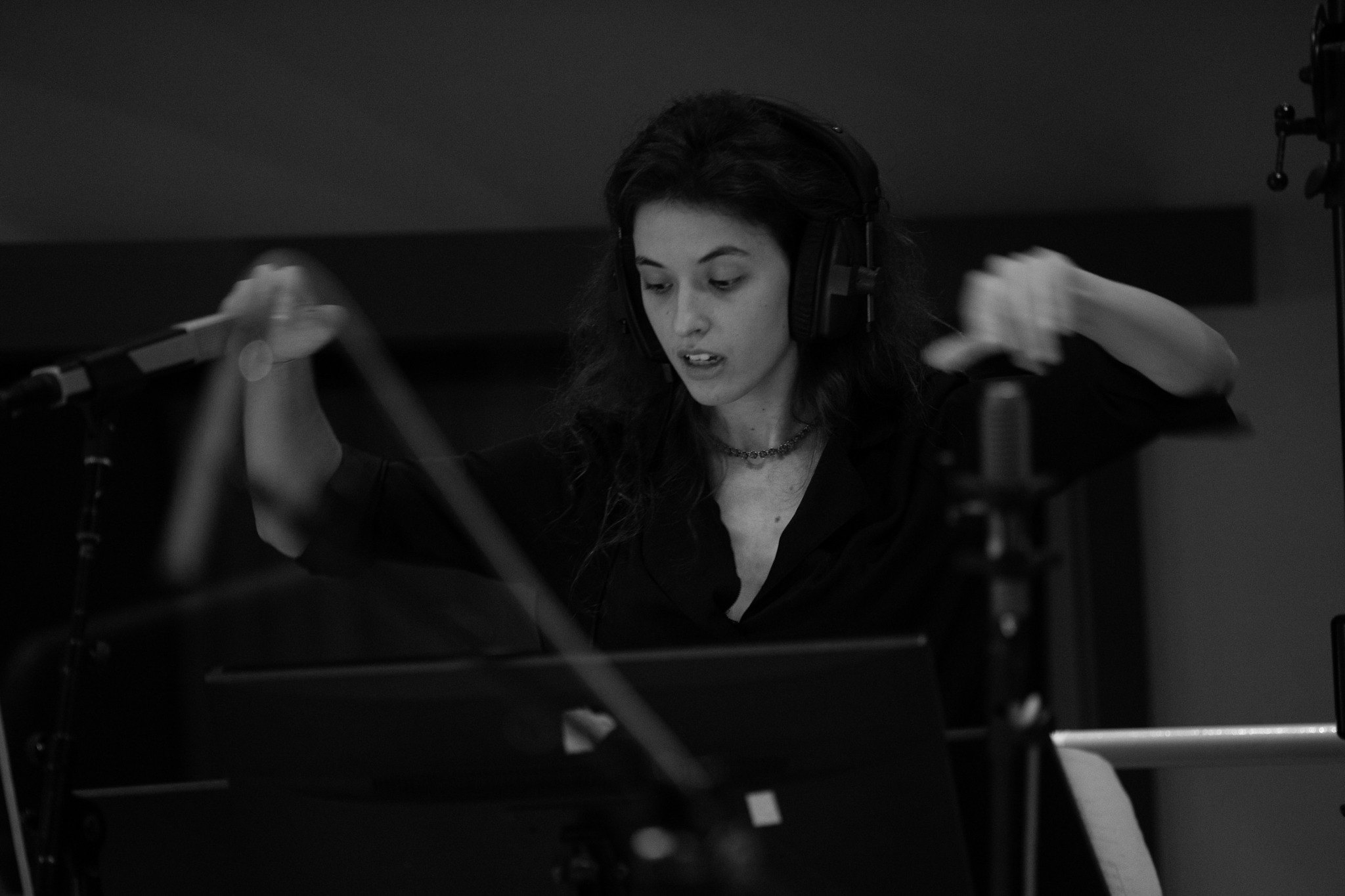
Awesome – so before we get into the rest of our questions, can you briefly introduce yourself to our readers.
I am a composer, for film and concert music. I work with orchestras as well as electronic music. Which technique I chose depends on what the filmmakers ask for their movie. Originally from Switzerland, I worked for the two last years in Los Angeles and my latest movie was to a stop-motion animation directed by Yoo Lee. I enjoy working with every genre of movie, and especially with animation – my next score will be for stop-motion, too. I was therefore very delighted to be invited to speak at the Women Composer’s Panel at the Annecy Film Festival this year.
My work as a composer is project-based and differs from movie to movie and concert to concert – in the former case, I analyze the movie during meetings with the filmmakers-team, where I hear what their thoughts on the music and movie are and with this inspiration, I develop the score. It is a conversation between the composer and the moviemakers. In the concert setting, I speak with the music director and/or conductor and see what program is desired for the concert. I rejoice in both every day.
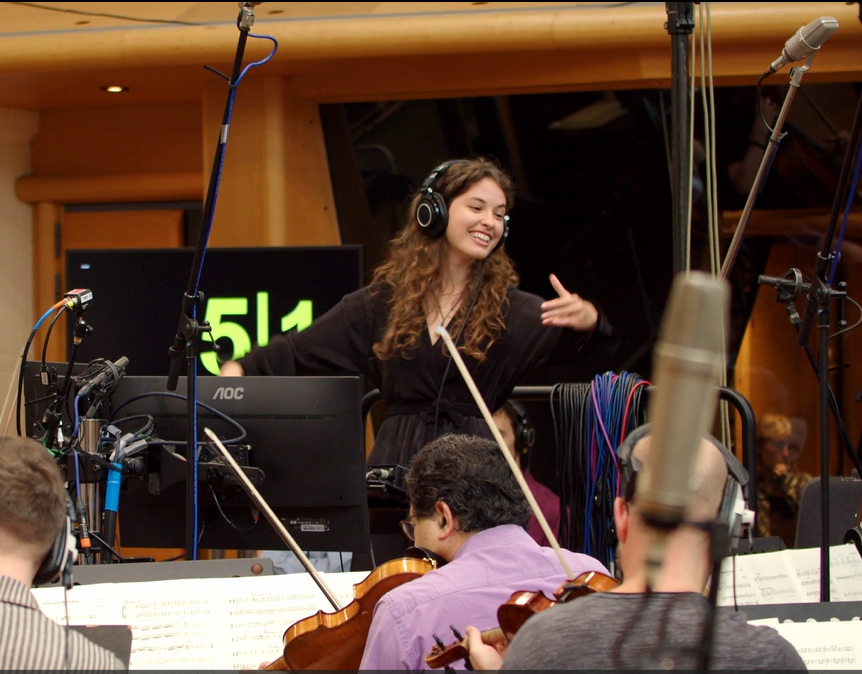
Do you think there is something that non-creatives might struggle to understand about your journey as a creative? Maybe you can shed some light?
The flexible time schedules of an artist might be tricky to understand for a non-artist. As a composer, the work is usually project-based, hence there might be very intense work periods, and less intense ones. This being said, if the project requires it, you usually work on the weekends, or in late hours – so you might miss a friend’s barbecue event or a pool party, since your fellow colleagues usually all have off on the weekends – whereas sometimes as a composer you have full free days during the week. I adore that every day is different – in this way, every day becomes an adventure in itself.
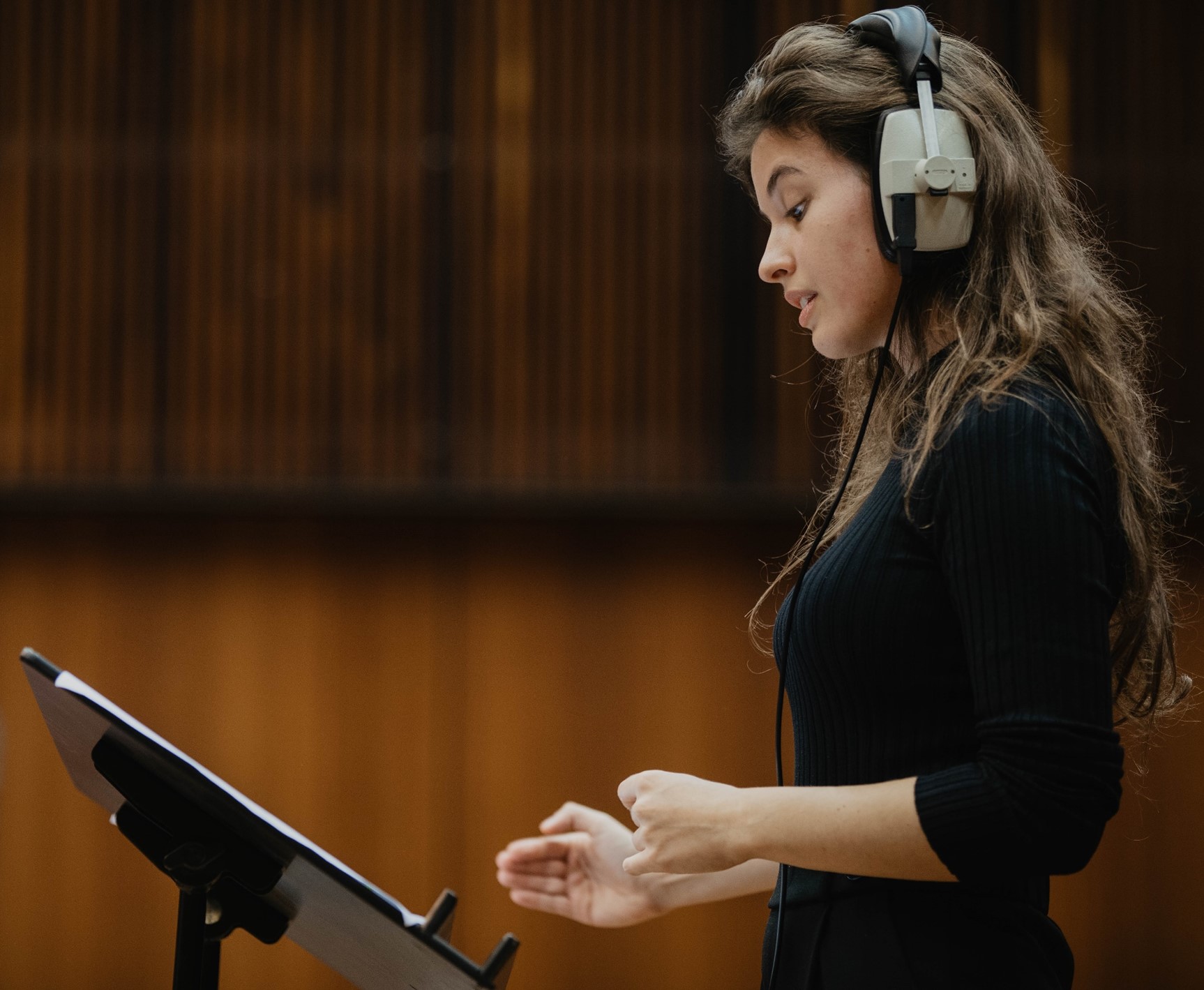
For you, what’s the most rewarding aspect of being a creative?
The most rewarding moment in my job is when the director or the audience is happy and touched by my composition.
In the process of a movie creation, there are 3 instances of this moment: Firstly, when the filmmakers select the composer and you successfully pass the pitching – when they want you to write some music to hear if you actually fit as a composer for the movie before hiring you, and you do. Secondly, during and along the process, when I write different passages while the movie is being made (animated or filmed) and I hear positive feedback. Thirdly and lastly, when the movie is complete. When the filmmakers share with me their joy, when they share with me their emotions, when they let me know what the music does to them and the movie – these are the most precious moments.
In concert music, the most rewarding moment is, when the audience arises with a strong applause and cheers – it simply warms the heart.
Contact Info:
- Website: https://www.joellenager.com
